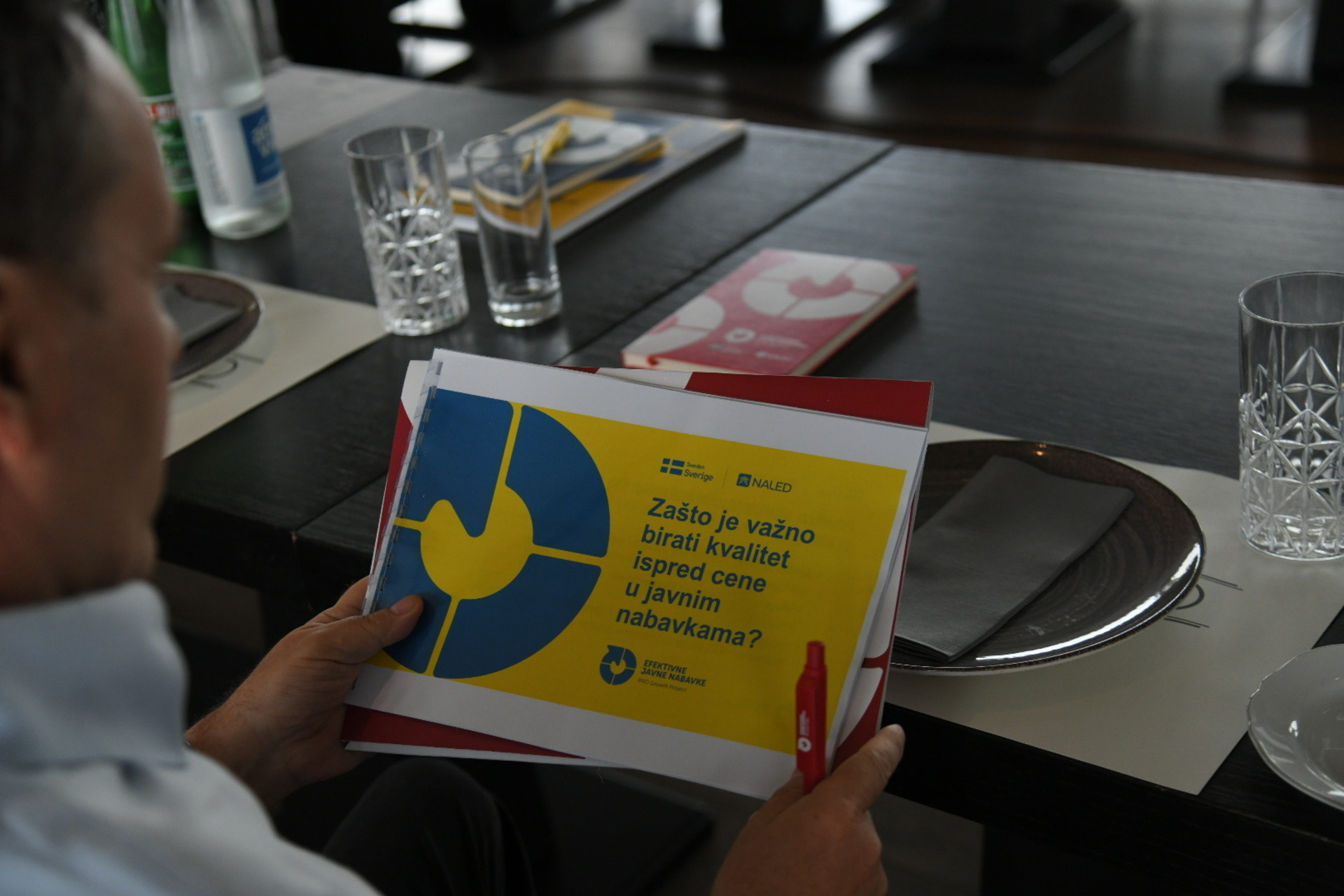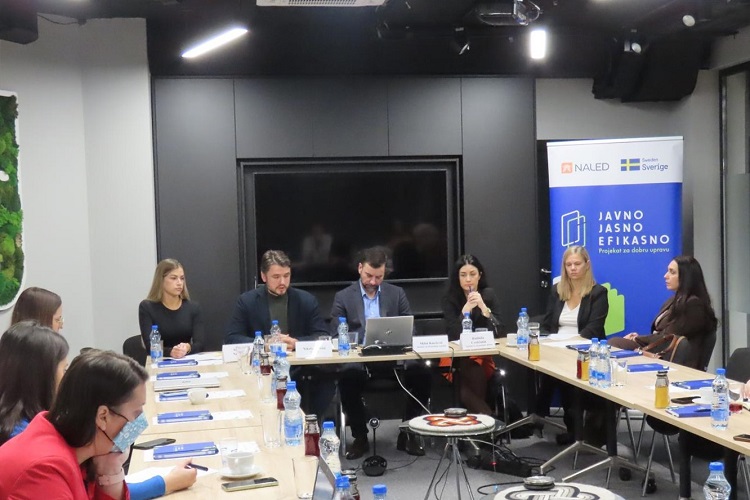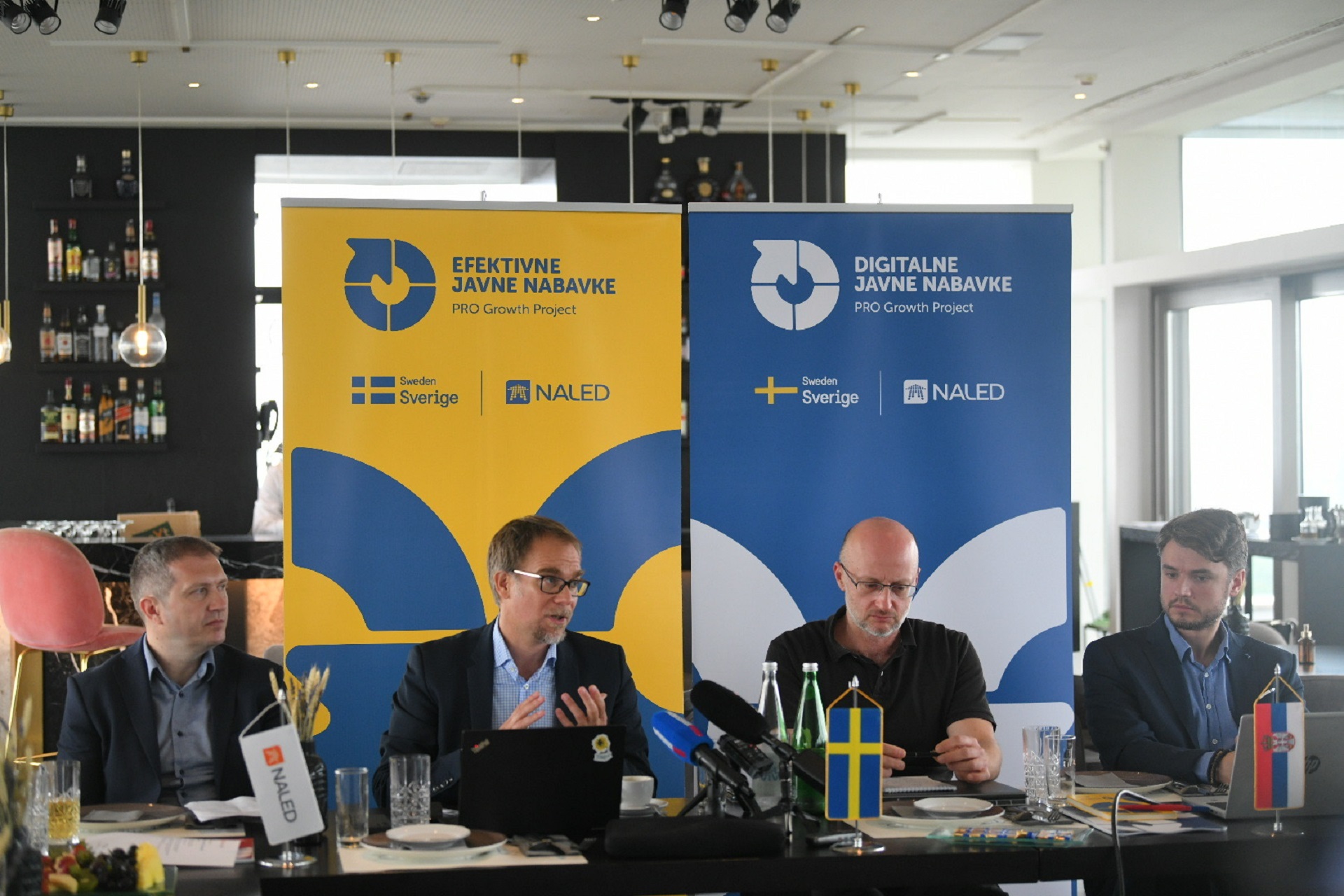Every other citizen evaluates public procurement positively, better conditions and control are key to strengthening competition
One out of three citizens in Serbia is familiar with the public procurement system, which is lower than a year ago, while the percentage of those primarily informed via television has risen to over 50%. Following social media and portals, ministries remain the most trusted source regarding data credibility, according to a new survey of citizen, bidder, and procurer attitudes conducted by Ipsos for NALED.
Slightly more than half of the citizens think that the public procurement system in our country is good. However, on the other hand, the percentage of bidders who do not participate in them because they do not believe the process will be fair and transparent has risen to 42%. At the same time, bidders who participated in the bidding in the previous three years more often assess that procurement in Serbia is carried out transparently and in accordance with the regulations than those who did not participate in the tenders.
According to the Executive Director of NALED, Violeta Jovanović, the only way to substantially improve the system and build trust is through concrete measures that make it equal for everyone. These measures ensure the full implementation of the new law through training for working on the portal and the application of the criteria for the economically most favorable offer.
- It's evident that citizens of Serbia are very interested in knowing how budget funds will be spent and have opinions on priorities, but they should be provided with avenues to express these opinions and participate in consultations when plans are being made. Procuring entities are concerned about the lack of competition, while potential bidders are deterred from participating in tenders due to a lack of confidence that procurements will be lawful and fair. This serves as a guide on what needs to be done to increase competition - government authorities should investigate a significantly larger number of cases where there are suspicions of rigged procurement, and whatever they uncover in this process should be immediately shared with the public - concluded Nemanja Nenadić, Program Director at Transparency Serbia. He also highlighted data from research indicating that as many as 94% of citizens believe that public procurement should be strictly controlled.
In addition, responses from public sector representatives indicate a growing interest in information about companies that have not performed well, with 44% of procurers highlighting the absence of a publicly available list of negative references as the main obstacle in procurement processes. Another 22% are increasingly concerned about the prolonged proceedings before the Republic Commission for the Protection of Rights.



